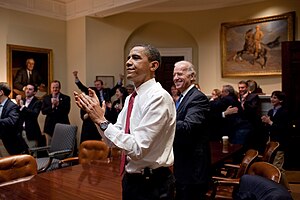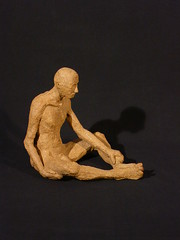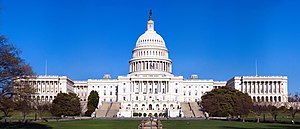The Kindle and Nook may make for not only the most important
advance in reading since Gutenberg, but also, quite likely, a major lesson in
unintended consequences. Especially for
the educational establishment, because for the first time in history, Americans
should be able to envision a future without public-school teachers -- indeed, a
future without public-school administrators or state departments of education
with their rigidly enforced, politically correct social-transformation
curriculum. A future without onerous
school taxes, "education president(s)," self-preening school boards,
or million-dollar classrooms. But most
happily, a future without a single supercilious finger wagging in our face as
we're forever lectured about how much a securely tenured, part-time,
self-important, overpaid class of public employees "cares" about our
sons and daughters. Really, really,
really cares. And, of course, knows much
better than we do how to bring them up.
And it's all possible because these cheap, handheld,
downloadable reading devices such as Kindle and Nook now give parents a choice
between tutoring and classroom education.
Tutoring has always been the preferred model. That is after all how the very rich educated
their children. Second-best, and
not-so-second-best at that, were the small schools where the second tier of
society, the well-off not-so-rich, pooled their resources in some public
location and shared tutors. (Which is
why the British, as in Eton and Harrow, still call exclusive private schools
"public" schools.) And of
course, the elite universities did their best to maintain the tutoring model of
education. Did their best, that is, to
steer clear of classroom instruction.
Because as opposed to a setting where the instructor stands
in front a blackboard lecturing a group of students day after day, guiding and
encouraging them through a restricted curriculum, tutoring is a process of
individualized on-your-own reading and writing followed a quick critique from
the tutor. A character and
skill-building technique which not only consumes vastly more learning material,
but hits it harder. In much less time.
A number of years ago, the Wall Street Journal had a piece
about homeschooling in which a professional in some other field explained his
discovery of the huge amount of material but amazingly small amount of time it
takes to thoroughly educate a child with the tutoring model. A routine his daughter explained as reading a
book every day and then writing an essay about it. "Read a book, write an essay."
In fact, even the simplest tutoring approach often works
magic. Years ago, a twelve-year-old
foster child arrived in our home essentially unable to read after six or seven
years of classroom "special" education. To the point where he didn't even know how to
use a dictionary. Our oldest son, a
prolific writer, happened to be visiting us at the time, saw the problem, and
came up with a fix. He handed the boy
the newspaper he read each morning, told him to sit on his bed, read it aloud,
and circle every word he couldn't pronounce or didn't know the meaning of. Then, later, the two of them went over the
circled words together. The first day,
every fourth or fifth word was circled, but it wasn't very long before the
number of circles began to decrease, and something clicked in the boy's
mind. "Hey," he seemed to say
to himself, "this is not such a mystery.
I can get this reading and writing thing working on my own." And he went on to other material. Then, when he was ready to begin high school,
the state and local school district sent a team to evaluate him in order to
design a classroom program that met his "special needs." Only there wasn't any, because they were
shocked to discover that he tested at or above -- and in a couple of subjects,
far above -- his grade level.
And that's all it takes.
Hand out the reading assignment, be available, or have someone else
available to examine the essay they write and perhaps send them back to the same
material book for another go or two on the same subject. Because tutoring doesn't teach a discrete
body of knowledge as much as it does a skill we don't hear much about anymore:
scholarship. Not simply memorizing some
facts about a subject, but examining it from one perspective and then another
until you develop a detailed, three-dimensional view of the subject. It's your month to learn about the
Revolutionary War? Read a biography of
Washington one day, then in the next Paine or Jefferson, Madison and
Adams. Intersperse these books with a
personal account of a common soldier, a slave, a parson of the time. Sample some fiction which portrays the period
-- Drums Along the Mohawk, for example.
Some of the short and breezy economic looks about the period like The
Timber Economy of New England. Maybe read
the newspapers of the time.
Twenty days, twenty books, all of which a student has had to
think fairly deeply about because he knows that he has to write about them, and
voilà: a child knows more about the Revolutionary period than -- not to put too
fine a point on it -- the average public-school teacher.
Too much to expect of your little second-grader? Well, for little people, there are little
books with little words, and at the end of the day, little essays. They'll grow.
Kids are smart.
It also sums down to a little block of time because without
having to get ready for the school bus; the bus ride; dispersing to classroom;
disciplinary issues in classrooms; having to raise your hand to go to the
bathroom; noisy, chaotic hallways scenes every fifty minutes; noisy, chaotic
lunch periods; announcements; fire drills; lectures about bullying, respecting
alternative lifestyles, or strangers; then preparing for the bus ride home,
followed by homework, one can do a better job with a child in two hours than a
traditional school classroom setting can in eight.
There's also the issue of the eight-hundred-pound gorilla in
the classroom which the educational establishment will never admit to:
indoctrination.
After all, whom do we thank for the classroom? Yes, that right -- dissenting religious sects
who wanted their children to read the Bible (their version of it), couldn't
afford individual tutors or many other books, and stood a schoolmaster/preacher
up in front of a bunch of benches. An
effort in indoctrination which later sublimated into civics (a branch of the
same tree), after the schools were secularized and then in these latter days
into a mushy leveling philosophy rooted in certain psychological/Marxist
precepts that seem to impart a new and even higher truth.
Such as the very strange belief that competition is damaging
-- that children are fragile, everyone is the same as everyone else, everyone
is special, students can learn as much from other students as they may from
adults, don't judge, don't strive...and teachers, don't you dare encourage
students to study really hard in order to achieve "ability
status"...don't make any gestures when you sing "Twinkle, Twinkle,
Little Star" because it might offend deaf people -- yada, yada. Anyone with even just a passing acquaintance
knows the drill. Knows that this is in
fact the end-game of public education -- a belief system.
And so, just as in the earlier religious schools and later
in the quasi-religious civics schools, the information allowed to reach the
classroom is controlled.
Via the texts.
Diane Ravitch and others have written extensively on the
issue of K-12 textbooks, and anybody interested in the Byzantine, incredibly
politically correct process by which they are formulated should read her. Suffice it to say that they provide a very
restricted view of subjects and, even in "science," do their best to
push the party line in much the same manner as a communist math textbook from
the 1930s would offer the problem "if one capitalist can exploit twelve
workers a day, how many can ten exploit in seven point five days?"
Public-school textbooks also make things up. Portray the starving times in the early
Virginia colony as a transitional period in which the early colonists hadn't
yet learned to "share," when the exact opposite was the case. I believe that it was Ravitch herself who
used the example of a passage in a social studies text which presented as fact,
and so glorified, the vanished Anasazi of the southwest as developing an
egalitarian society in which everything was shared, when the fact is that they
left no written record and so nobody knows how they organized themselves. But the examples of selection and mendacity
are legion. And cut from exactly the
same bolt of cloth used by earlier educators, who portrayed the
four-hundred-year history of the Spanish Inquisition as history's benchmark for
terror (and it is a good example) but ignored the fact that religious fanatics
from their own doctrinal camp in tiny Scotland burned as many so-called
heretics in forty.
But suddenly, with a Kindle or Nook in hand, children can
skip the propaganda. At the fingertips
of parents armed with a one of these electronic reading devices, there are
eight hundred thousand free books -- and a million for sometimes as little as
ninety-nine cents. They can find their
own lies if they want to. Or, more
importantly, the truth.
Which means that just as the automatic washing machine and
dryer made in-house, twenty-four-a-day laundry service available to the
middle-class (who couldn't afford live-in maids), these new, quickly
downloadable electronic readers have put individual tutoring within reach of
the great mass of families. Because the
problem with tutoring has always been the books. A wealthy family might have had a huge,
expensive library to draw from, while the peasants never did. Even a middle-class family in America today
would be hard-put to sample and then make available 300 different print books
for a child every year -- three children, 900 books. But now even the meanest family can have the
Library of Congress in their pocket, or their child's backpack. In fact, there isn't any need to lug a
backpack around any longer.
So should all parents begin tutoring their children at
home? I don't know. My children are long grown and on their own,
but if I had them back and compared the two visions -- a tutoring program
taking only an hour or two out of my day which would land my child on his feet
at age eighteen, having read and written about the lessons of over four
thousand books, or a public education in which he would read and understand, if
I was lucky, a hundred or two -- I'd be mighty tempted. Not to mention the fact that for twelve years
I wouldn't have had some other adult whispering strange nothings in my kid's
ear.
But what I am convinced of is that given the advent of the
Kindle and Nook and whatever surprises follow, the current model of
classroom-based public education is simply a dead woman walking. Teachers are going to have to reinvent
themselves because children aren't going to be lectured to anymore day after dreary
day. They won't allow it. Parents won't allow it. For the one single reason that they don't
have to anymore. Instead, more and more
children are going to be reading and writing and talking about the world of
knowledge they're exploring. Intelligently. Becoming ever more educated while spending a
much greater portion of their day doing what kids are wont to do. Running and shouting in the autumn sunshine,
assembling a model of the Empire State Building in the basement, collecting
rocks or dolls or pets. Being, one might
say, kids.
Richard F. Miniter is the author of The Things I Want Most (BDD, Random House) and the coming e-book Conversations With My Graddaughter. He writes in Stone Ridge New York and can be reached at miniterhome@aol.com.










